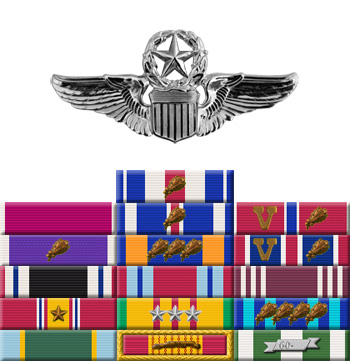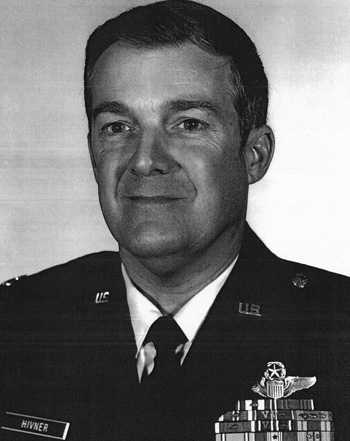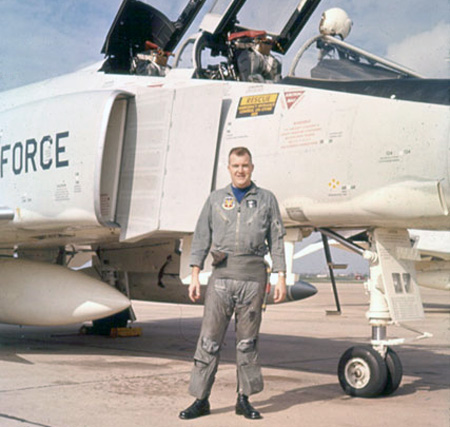
|
James O. "Jim" Hivner |
 |
|||
| Rank, Service | ||||
Colonel O-6, U.S. Air Force |
||||
| Veteran of: | ||||
|
||||
| Tribute: | ||||
Jim Hivner was born on February 20, 1931, in Elizabethtown, Pennsylvania. He received his BA degree in teaching in June 1953, but wanting to fly more than teach school, he entered the Aviation Cadet Program of the U.S. Air Force on November 23, 1953, and was commissioned a 2d Lt and awarded his pilot wings on March 14, 1955. After gunnery school in the T-33 Shooting Star, he completed F-84F Thunderstreak training in September 1955. Lt Hivner served at Bergstrom AFB, Texas, from October 1955 to December 1959. He then transferred to Kadena AB, Okinawa, where he served from January 1960 to August 1962. Capt Hivner then served with the 45th, 46th, and then the 43rd Tactical Fighter Squadron at MacDill AFB, Florida, flying the F-84F and then the F-4C Phantom II, from August 1962 to October 1965. While on deployment to Southeast Asia, he was forced to eject over North Vietnam when his Phantom was hit twice by heavy antiaircraft fire, on October 5, 1965. He was captured almost immediately and spent the next 2,687 days in captivity before being released during Operation Homecoming on February 12, 1973. Col Hivner was briefly hospitalized and treated for beriberi, caused by severe malnutrition, but the resulting blind spots prevented him from getting back in the cockpit. He returned to Bergstrom AFB, in the logistics/supply field, until he retired from the Air Force on November 1, 1976. Jim and Phyllis, a Registered Nurse, were married in 1955 and had two daughters and four grandsons. Jim Hivner Flew West on July 19, 2017, and was buried at the Dallas-Fort Worth National Cemetery in Dallas, Texas. His wife Phyllis (1934-2016) is buried with him. |
||||
|
||||


